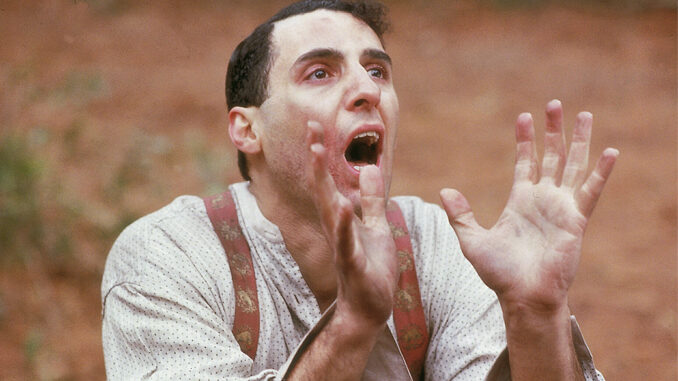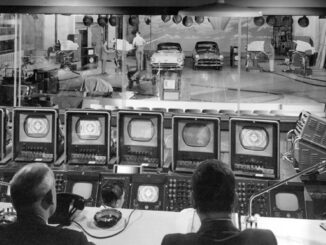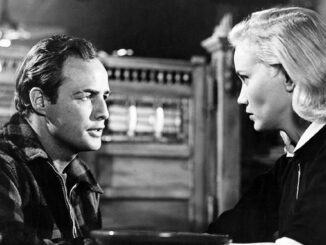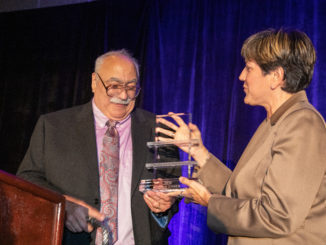
by John Heath, ACE
I have always been envious of those who came to the business because of their love and passion for films. I was born into the film industry and didn’t appreciate my proximity. My father, Larry Heath, was a film editor. The studio was not a mythical place where movie magic happened. It was the place where my dad went to work. As a child, I would join him in the cutting room––more as a parenting responsibility than an opportunity for a father to pass on his craft. I enjoyed the special arrangement, but it wasn’t exactly editing school. Dad worked hard and deliberately, bringing clarity to what seemed like mountains of film.
I can remember how intimidating the task seemed. What I didn’t understand then was that I could learn the craft of film editing and that it would become less intimidating. As I learned about the crafts of editing, acting, directing and producing, my interest and passion for films and filmmaking grew.
Joel and Ethan Coen’s Miller’s Crossing opens in an insert as ice drops into an old- fashioned glass and whiskey from a cut crystal decanter is poured. As the camera pulls back, we hear an Italian mob boss complaining to an Irish mob boss about the Jewish bookie Ernie selling tips on fixed fights. “It’s getting to where an honest businessman can’t expect a fair return on a fixed fight,” he says, ranting about the lack of ethics––without any sense of irony––while his henchman stands guard. The protagonist Tom, an observer, is introduced first out-of-focus, moving in the background. The delay in seeing his face enhances his importance. This was an unconventional and creative approach to the beginning of a movie. I was involved immediately. The editing, the photography and the dialogue had me wanting more.
It was 1990 and I was working in episodic television, which can put strains on opportunities to be creative. The focus of the craft tends to serve the schedule rather than creativity. However, I could see that the choices made in the opening of Miller’s Crossing were so simple and elegant that they could be made in television or film.
The story is Shakespearean. It’s Prohibition and Tom (Gabriel Byrne), the trust- ed lieutenant of Leo (Albert Finney), the Irish boss, plays it close to the vest as he weaves his way through a power struggle trying to survive––while having an affair with Leo’s girlfriend (Marcia Gay Harden), who is also Ernie’s sister. It is a story about loyalty and ethics told with a combination of tension and humor.
Tom is smart in advising and manipulating all sides of the struggle. However, it is at the secluded Miller’s Crossing where he is confronted with life and death choices. He is a man of wit, not violence, but he must prove his allegiance by executing Ernie or be killed himself. His solution to his dilemma drives the rest of the story.
As the situation evolves, so do the ethics. Tom’s dapper hat is constantly being knocked off his head as he tries to maintain his equilibrium; this motif hints to the Coen brothers’ views on life and fate, and our ability to control them.
The acting serves the story beautifully. Finney is a larger-than-life character that is never over the top, Byrne only hints at what’s really going on underneath, and Gay Harden is vulnerable and sensual as victim and survivor. Ernie, played by John Turturro (whose “unethical behavior” sets everything in motion), creates a character you sometimes pity, other times despise.
Miller’s Crossing’s romantic style counterpoints the tension and violence. The cinematography is warm and defuse. The editing style, without being indulgent, allows you to take in all of what each cut has to offer. The framing of each shot is never capricious, instead beautifully composed to move the plot along, inform on character or create the appropriate mood or feel. The Coens are smart, creative guys; they always write interesting, thoughtful stories where the issues resonate without being didactic. With this film, their talents and craftsmanship really came together.
When I first saw Miller’s Crossing, I had been editing for about 12 years, had studied acting and directing, and was fortunate enough to have directed several episodes of television. While I don’t have the talent or smarts of the Coens, my experience allowed me to better appreciate their craftsmanship in filmmaking and made me realize that I too could bring more creativity and originality to my work. A muse can come in many forms; Miller’s Crossing inspired me to strive for more.





